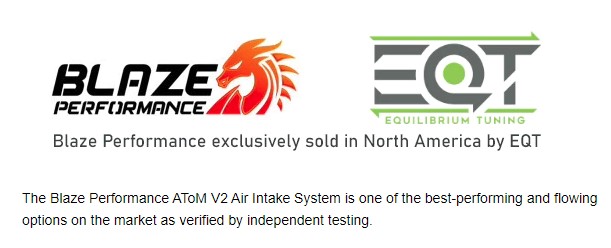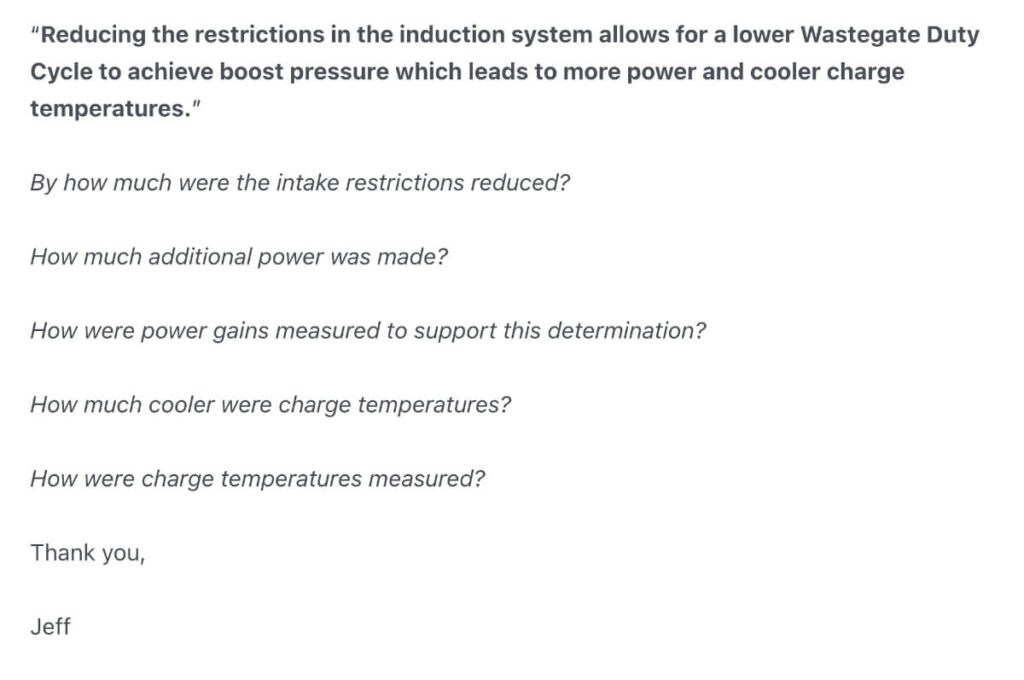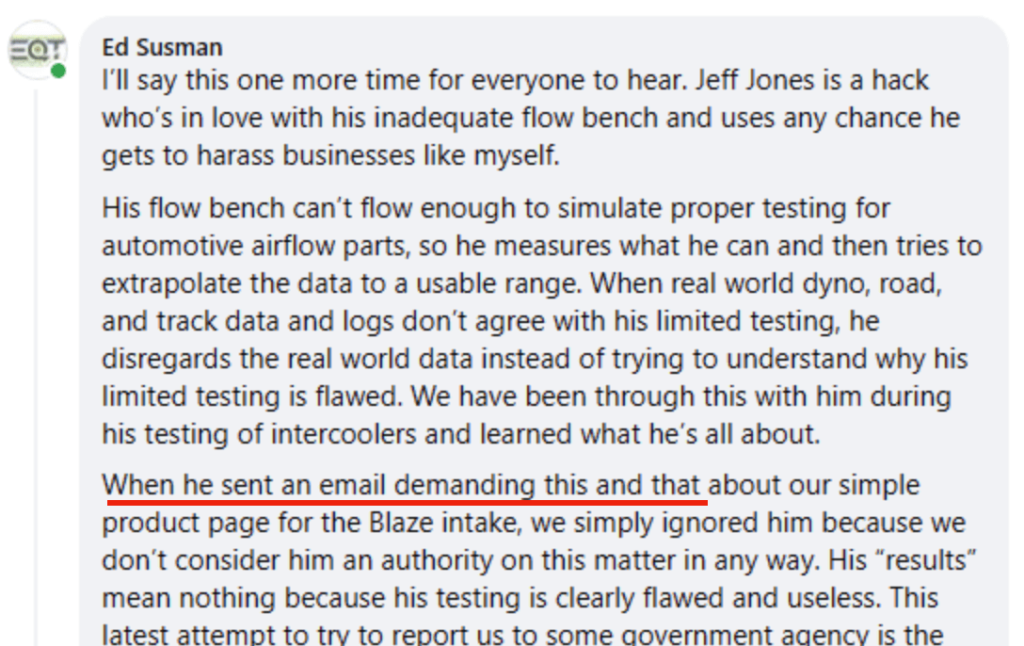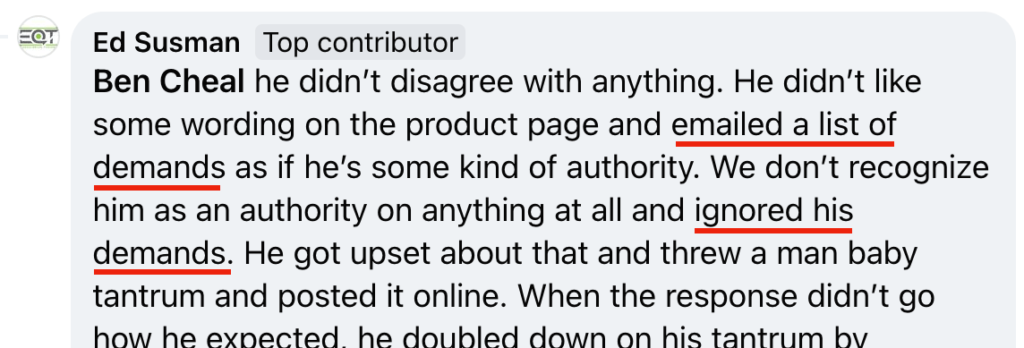Background:
Equilibrium Tuning Inc. is a United States-based business selling aftermarket automotive performance parts and services.
Equilibrium Tuning made a bold claim for the Blaze performance ATOM V2 intake that they sell.

Interested in learning how they arrived at their conclusions I sent an email to Equilibrium Tuning with questions about the claims.
The full email sent to EQT is contained in this previous post.
This is the introduction of the email:

The body of the email follows a similar format of presenting EQT claims in quotes followed by my questions about the claim.
The email concludes as shown below:

Response:
EQT did not answer any of the questions, failing to respond to my email entirely. I then posted a review of the advertising claims based on the information available to consumers.
Ed Susman did respond when the review was posted, though he still failed to address the questions. Instead, Ed’s reaction was to try to deceive consumers on social media that the questions I had emailed to EQT were “demands“.
For reference, this is what the definition of a demand is:
Demand – To ask for (a thing) peremptorily, imperiously, urgently, or in such a way as to command attention.
Oxford English Dictionary
- Peremptorily – in a way that allows no discussion or possibility of refusing.
- Imperiously – in an unpleasantly proud way and expecting to be obeyed.
- Urgently – in a way that requires immediate action or attention.
- In such a way as to command attention.
Ed’s claim was baseless, there is no wording in the email that meets the criteria of a demand.
Ed Susman was making a false statement to consumers.
Ed then employed a fallacy (errors in reasoning that make arguments seem valid but are actually flawed or deceptive) on consumers, the “Proof by assertion” fallacy.
Proof by assertion, sometimes informally referred to as proof by repeated assertion, is an informal fallacy in which a proposition is repeatedly restated regardless of contradiction and refutation.
Proof by assertion. (2023, November 25). In Wikipedia.
Ed would state repeatedly that the questions were “demands”, taking a page out of the Nazi Propaganda playbook:

Evidence:
Here is Ed’s first misuse of the term “demand“:

Here Ed employs the “Proof by assertion” fallacy repeating the false statement:

Once again:

and again:

and again:

Conclusion:
The email communication I sent to Equilibrium Tuning with questions about the claims the company makes for the Blaze intake did not contain any language indicating it met the definition of being a demand.
Ed Susman’s statements to consumers that I made “demands” of his business are false.
Implications:
In prior posts, I have addressed numerous examples of Ed Susman making false statements to consumers and mentioned the concern this causes me related to matters of business ethics, transparency, and integrity.
I have shown examples of Ed Susman using personal attacks (“ad hominem“) against me to avoid factually addressing matters involving his business.
Ed Susman and other members of Equilibrium Tuning have a robust presence on Social Media where they communicate directly with consumers to promote their business.
This direct communication is risky for consumers when business members communicate in a way that misleads consumers as was the case of Ed Susman in the examples shown in this post.
The multitude of deceptive techniques reviewed in this post, and prior posts, suggests that consumers should be on their guard when interacting with Ed Susman.
Beyond fulfilling legal obligations, ethical values in business show strong moral character from leaders and employees.
Leaders.com
